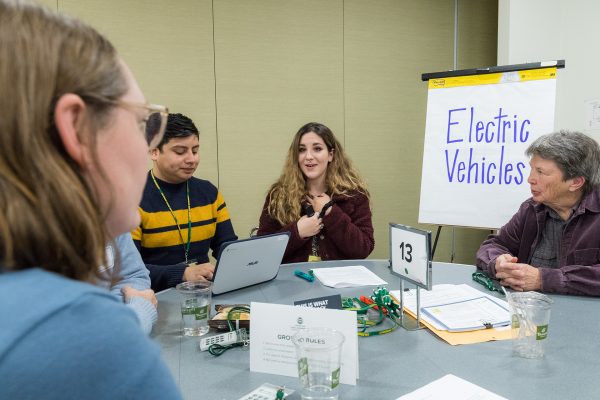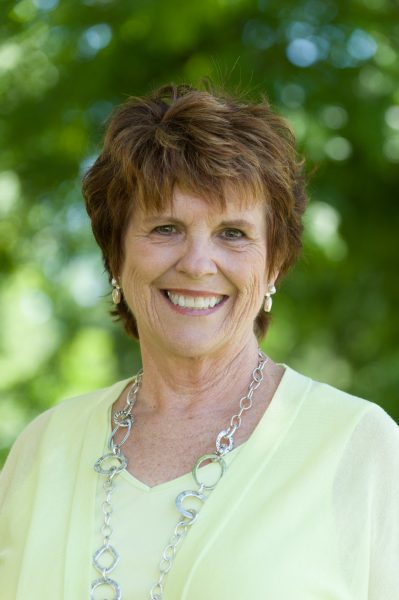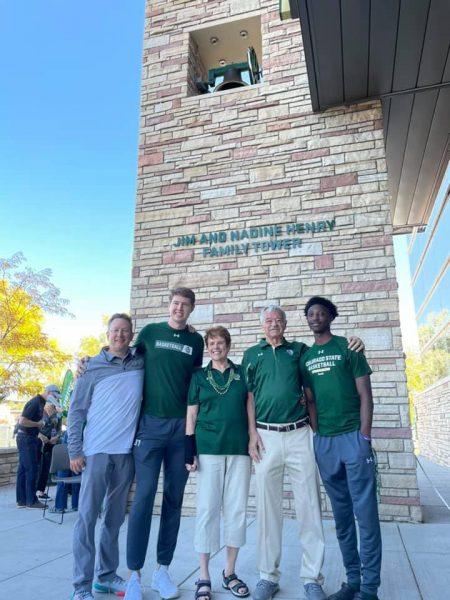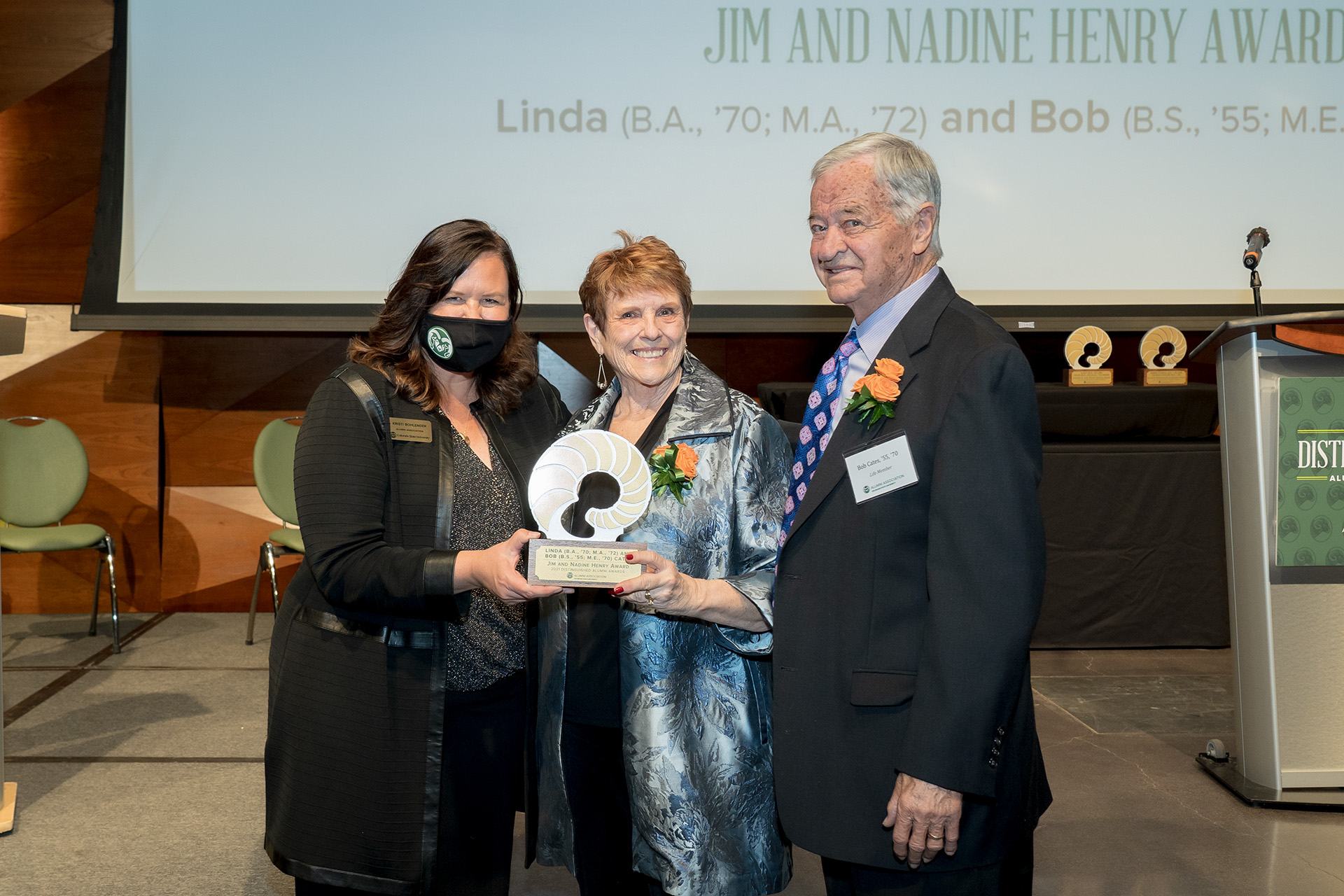
Photo: The Center for Public Deliberation trains students to become facilitators, equipping them with the skills needed to manage effective and meaningful conversations with the community.
Portions of this article were taken from "A tale of two nontraditional students, 47 years apart" written by Carol Busch
Linda Cates arrived at CSU in 1967 as a 21-year-old transfer student from the University of Colorado. She was married with an 18-month-old daughter to support and had no financial means to pay for college other than work-study jobs and student loans.
At the time, no scholarships existed to help nontraditional students. “I certainly could’ve used that kind of financial help,” Cates says.
Instead, she put herself through school while working part-time and found refuge in the Department of Speech Arts (now Communication Studies). Three influential professors — Jack Gravlee, James Irvine, and Robert MacLauchlin — inspired her to see a different future for herself.

“Back in 1964 when I graduated from high school, women didn’t have the career choices they have today,” Cates says. “You could be a nurse, secretary, teacher, or stay-at-home mom — that’s all I saw for myself.”
For Cates, the academic rigor, personal attention, departmental camaraderie and mentor encouragement at CSU helped her grow beyond culturally prescribed norms.
She earned her B.A. in 1970 and dove into graduate studies. For the first time ever, she found herself considering the idea of earning a Ph.D. and becoming a college professor. She loved the material she engaged with and the people who opened her eyes to the world. She earned her M.A. in 1972.
After five years of living in student housing and juggling a heavy load of school, work, and being a mom, Cates was ready for a break. She found a job teaching speech communication and mass media at the high school level. It helped pay down half the principal on her student loan. Her daughter grew. Cates divorced and remarried. But she stayed committed to education.
The shift in confidence Cates experienced at CSU is something she still speaks about today, and with great pride. “Those men made a true difference in my life,” Cates says. “They made me believe in myself.”
Giving Back
Linda, and her husband Bob Cates, are long-time donors to CSU via Athletics and the Department of Communication Studies where Linda has a scholarship in her name, the Linda Cates Scholarship, which provides support to nontraditional students in her home department.
In 2014 she established the Linda Cates Scholarship for Democratic Deliberation in support of the Center for Public Deliberation (CPD), which is housed in Communication Studies.
“As members of the Liberal Arts Development Council, we were getting a tour of the then-new home of the department of Communication Studies, and I saw this plaque on the wall about the Center for Public Deliberation. I said, ‘what is this?’ and as soon as they told me, I thought, ‘I can’t imagine anything more valuable than training people on how to communicate in a group. I want to fund a scholarship; it’s that important,’” says Cates.


From the CPD website, “The CSU Center for Public Deliberation is dedicated to enhancing local democracy through improved public communication and community problem-solving.
Our aim is to improve the way our community is able to talk through complex issues so that we can arrive at better decisions. Deliberation requires:
- open spaces for citizens to come together,
- good and fair information to help structure the conversation,
- and skilled facilitators to guide the process.
The Center for Public Deliberation offers facilitation services that help public governing bodies, nonprofits and other organizations resolve challenges using an inclusive, comprehensive, deliberative approach.”
The Linda Cates Scholarship for Democratic Deliberation is awarded annually to a student associate at the CPD.
Addy Dodd, recent graduate and scholarship recipient, said this about her experience with the CPD: “The CPD has been a second home during my time at Colorado State University. In this program, I have developed a rare set of skills in facilitating conversations dealing with the most controversial issues of our day. During my time at CSU, I have witnessed some of the most significant global and local events, such as the COVID-19 pandemic and university racial bias controversies. While these experiences have been challenging to navigate, I am grateful that the CPD taught me to approach all matters with an open mind and the ability to listen to others to learn and not just react.”
Jasmine Ontiveros, scholarship recipient 2018-19, said, “The CPD has taught me about becoming a great speaker and how to have effective conversations.”
And Cates finds this skill integral to society. “Working with the community and university to make sure there is good listening being practiced, questions being asked, rude comments deferred or dealt with – I can’t imagine anything more important,” she says. “Whether it’s daily living or part of a specific job, students will use these skills.”
It is these kinds of hands-on learning and internship opportunities where students learn to apply skills from the classroom to the real world that help students solidify their academic knowledge and bring it to life.
“We do work in the real world – the liberal arts are important and relevant to what’s going on in our community, politics, and beyond,” says Cates.
“Working with the community and university to make sure there is good listening being practiced, questions being asked, rude comments deferred or dealt with – I can’t imagine anything more important."
